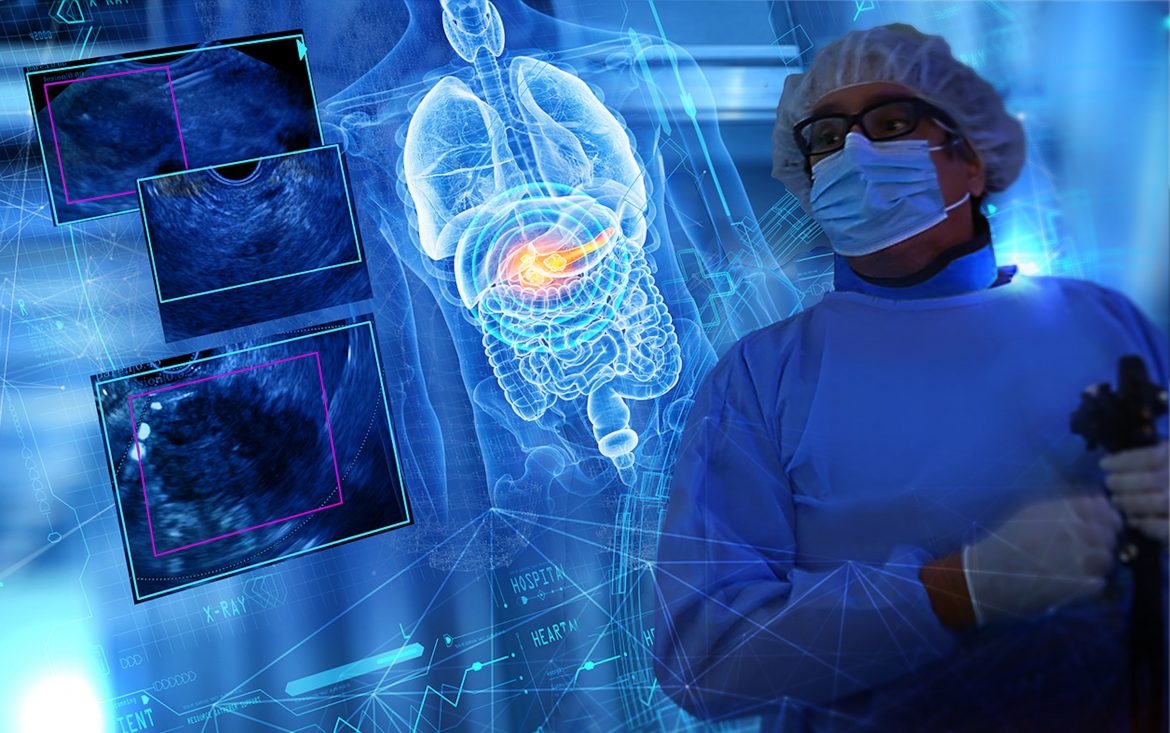The new AI software has the potential to revolutionize the diagnosis of pancreatic diseases.
Diseases of the pancreas can have serious consequences for patients and are difficult to diagnose. Early detection is crucial for the patient’s chance of survival.
The Medi-Globe Group, a leading international MedTech company based in Achenmühle, Bavaria, will, in cooperation with the French Institut Hospitalo-Universitaire (IHU) Strasbourg, develop the world’s first AI software for the detection of diseases of the pancreas in endoscopic ultrasound (EUS) examination.
The key technology here is artificial intelligence. As part of large-scale clinical studies prior to market introduction, the AI software has now gone into clinical test with patients, so-called first-in-human applications.
“The new software has the potential to revolutionize the diagnosis of pancreatic diseases and, above all, the diagnosis of pancreatic cancer. That would be a dream for society as a whole and an important milestone in medicine and for medical technology,” says Prof. Dr. Leonardo Sosa Valencia, one of the leading gastroenterologists in the world and a top expert in the field of pancreatic disease detection.
The AI software brings together the clinical experience of the world’s most experienced gastroenterologists. It bundles the knowledge from countless EUS examinations of the pancreas in an algorithm and transforms it into use in endoscopic ultrasound. The expert knowledge is used to train a neural network according to the deep learning method. For the diagnosis, it is crucial to recognize pathologically altered areas in the pancreas at an early stage so that a fine needle biopsy can accurately take tissue samples for further analyses and as basis for therapy decisions.
“With the AI software, in the future we will be able to provide gastroenterologists with a virtual expert and give them the opportunity to significantly improve the diagnostics that determine therapy. Very good results have already been achieved in the first clinical applications. Small lesions were detected, even in complex cases. This gives the treating physicians and, above all, the patients great hope for improvement of patient care in the medium term,” says Dr. Markus Schönberger, Director of Business Development at the Medi-Globe Group.

